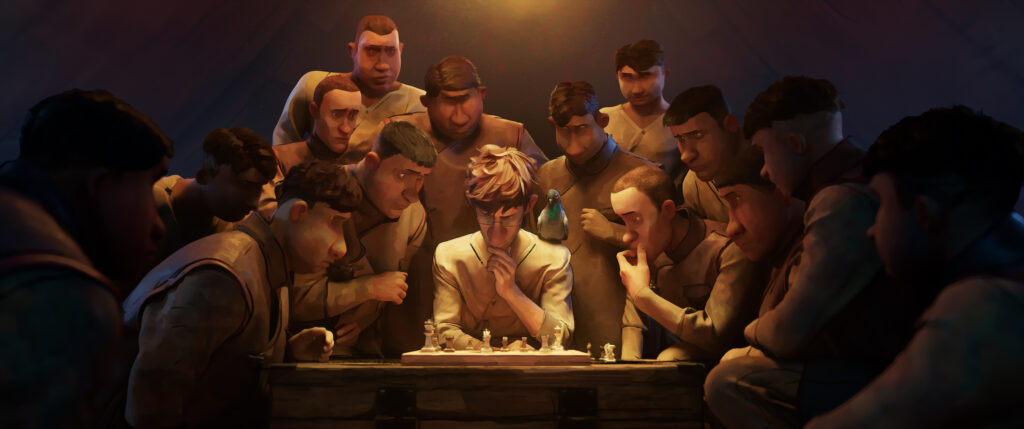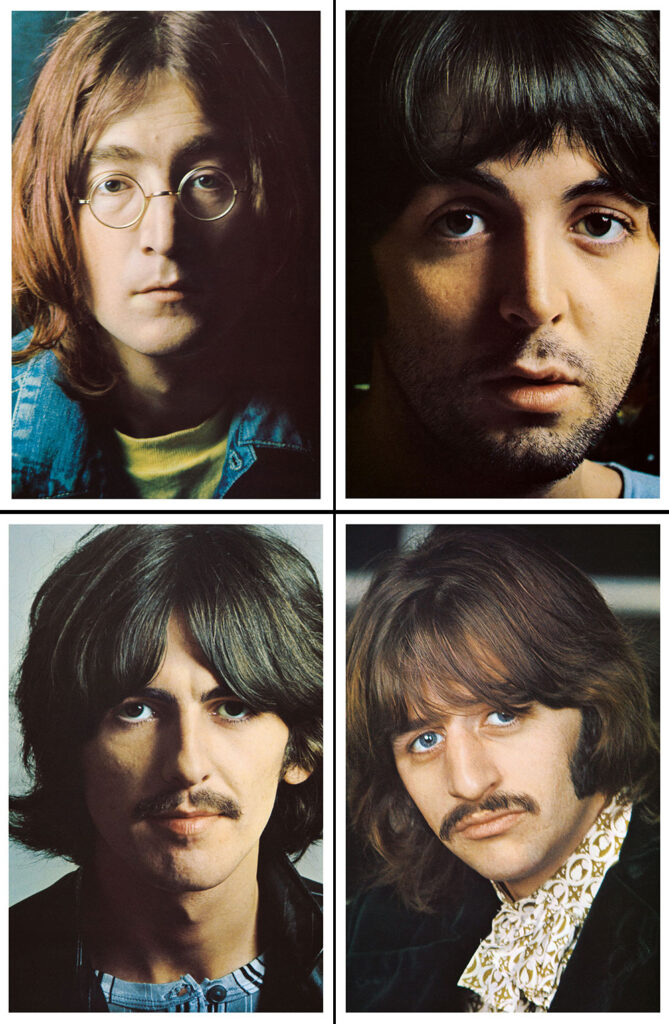Three years ago, Sean Ono Lennon was tasked with keeping his parent’s legacy relevant for future generations by creating a music video. His animated film, “War Is Over! Inspired by the music of John and Yoko” won an Oscar this week for Best Animated Short Film.

Movie still from “War is Over!”
Last month, it was announced that Oscar-winning director Sam Mendes (American Beauty) would be at the helm for four (!) separate feature films, one each on Paul McCartney, John Lennon, George Harrison and Ringo Starr, to “tell the astonishing story of the greatest band in history”, leading up to their breakup in 1970. All four films will be released in 2027, and Sony Pictures Entertainment promises the promotional roll-out will be “innovative and groundbreaking.” Paul and Ringo, and the families of John and George have granted full life-story and music rights for these scripted films.
It has been a remarkable run recently, for the lads from Liverpool.
At the end of last year, The Beatles accomplished something that even they could not have imagined, when they released a song that was not really new, but new in the sense that most people had never heard it before. “Now and Then,” a track recorded by John Lennon and thought to be unsalvageable existed only on a cassette tape. But suddenly (I’m not half the man I used to be….) through the innovation of AI and the talents of Peter Jackson, along with a determined promotional effort from Capitol Records, the Beatles had a #1 song on the charts in 2023.
The release of “Now and Then” coincided perfectly with Paragon client WTMD/Baltimore’s annual “Beatles Day,” and something remarkable occurred as the station was gearing up to play the entire Beatles catalog on a single day in late November: the audience interest in what had become an annual event for WTMD seemed more popular than ever.
Donations were up. Memberships increased. Sponsorship of “Beatles Day” was an easy sell. WTMD PD Carrie Evans estimated that this year’s “Beatles Day” generated over $10,000 over the course of a single day.

The photographs used for the portrait inserts of the White album were taken by Photographer John Kelly
Coincidentally, on that very same day, I attended “Grandparent’s Day” to spend time with my grandson and his classmates at a chorus recital in an elementary school gymnasium. The performance began with something that actually stunned me, as a fifth-grade boy took his seat at a stand-up piano and flawlessly played Paul McCartney’s, “When I’m 64.” I asked my Grandson, “Do you know who the Beatles are?” Of course, he did not.
My daughter is a sophomore in college. In her English Literature class, just this past semester, the professor had the gall to suggest that the Beatles were superior to Taylor Swift. Sophie said she appreciated both, but no one else in that Clemson University classroom had even heard of The Beatles.
Those clueless Clemson kids might be interested to know that USC has offered “The Beatles: Their Music and Their Times” to its students for over 20 years. At Berklee, students can choose multiple courses, like “The Music of The Beatles” or “The Solo Careers of The Beatles.” From Indiana University to The University of Alaska, Beatles courses abound.
As a testament to the band’s incredible endurance, the vast majority of artists making music after 1962 (when The Beatles released “Love Me Do” as their first single) have cited the Mop Tops as not only an influence, but for many, the lone reason why they became interested in music at all.
If you’re a parent, get started early. Introducing children to The Beatles not only expands their musical horizons but can serve as a gateway to understanding the social and artistic context of the 1960’s. Begin with Ringo singing “Yellow Submarine.” (Every child will be enchanted by the story of a guy named “Ringo,” for starters.) The rest will take care of itself. Move on to Paul next, with “Rocky Racoon.” Graduate to George’s “Here Comes The Sun,” but perhaps leave John for last. Lennon may require a deeper explanation.
And as a programmer, you may be conflicted about how many Beatles tracks you should really rotate, and why certain titles sound dated (“She Loves You”) while others (“Tomorrow Never Knows”) do not. But, in our experience, personally and professionally, the music of The Beatles has long been a unifying force across the universe.

Leave A Comment